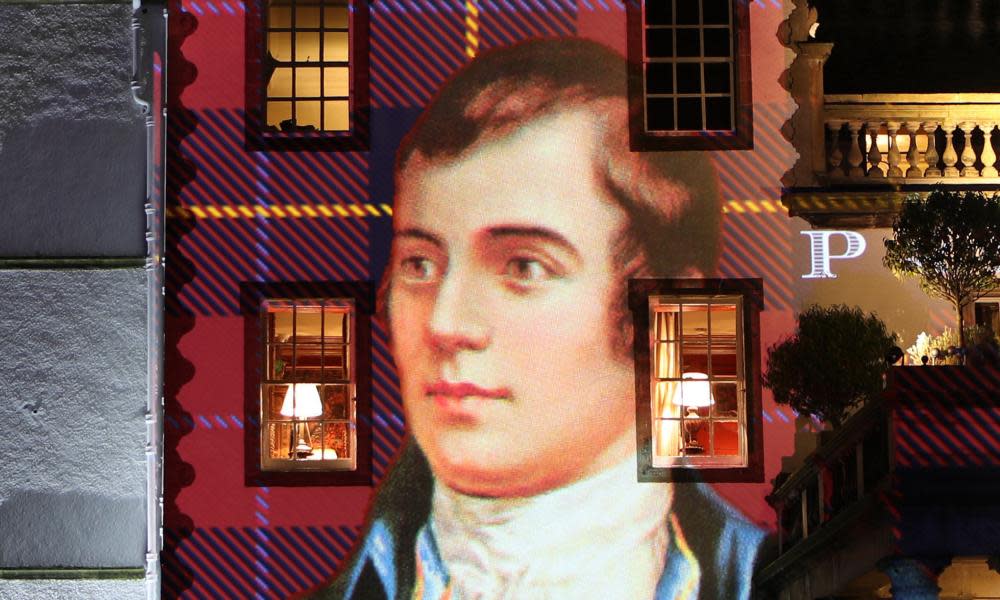Robert Burns letters reveal poet was advised not to write in Scots dialect

Burns warned use of dialect would alienate London readers in letter that forms part of major project by University of Glasgow
Scotland’s beloved son and national bard Robert Burns has done more than any other poet to export the 18th-century Scottish dialect around the world, through the new year classic Auld Lang Syne and his other famous works.
His lyrics, such as “we twa hae run about the braes/and pou’d the gowans fine”, may be incomprehensible to many, but the fame and influence of a man annually celebrated on 25 January has endured over more than two centuries.
His line from To a Mouse, “the best laid schemes o’ Mice an’ Men/ Gang aft-agley”, is said to have inspired John Steinbeck’s 1937 classic novella Of Mice and Men.
Yet Burns was advised not to write in Scots by one correspondent, who believed it would limit his audience, according to new research.
Dr John Moore, a Scottish physician and travel author, who wrote regularly to Burns, warned him that London readers would not connect to his works. Burns, obviously, ignored the advice, and the rest is history.
Academics at the University of Glasgow’s Centre for Robert Burns Studies looked at about 800 letters written by Burns and 300 to 400 letters from his friends and admirers
“In the correspondence, we get closer to Burns the man than anywhere else: his letters reveal his triumphs, failures, anxieties, fears and joys,” said Dr Rhona Brown, a senior lecturer in Scottish literature at the centre
“Two of Burns’s relationships stand out – with Dr John Moore and Mrs Frances Dunlop [a Scottish heiress and landowner] – as we have both sides of the correspondence.
“What is fascinating, for example, is that early on Moore advised Burns not to write in Scots. He cautioned Burns that he was limiting his audience and felt that London readers wouldn’t understand or connect with the Scots language. Dunlop advised him to avoid political subjects.
“But Burns is his own man and ignores the advice and carries on regardless. I think history has now shown that he was right.”
Related: Poem of the week: Oh wert thou in the cauld blast by Robert Burns
People around the globe will celebrate Burns Night on 25 January to celebrate the anniversary of the poet’s birth on that date in 1759.
The correspondence will be published as part of the new Collected Works of Robert Burns published by the Oxford University Press.
Dr Craig Lamont, a research associate in Robert Burns Studies at the University of Glasgow, said: “Burns sends Dr John Moore a long, heartfelt letter giving a detailed account of his childhood and life up to 1787: this letter is now known as Burns’s autobiographical letter.
“In response, Moore asks Burns to ‘divide your letters when they are so heavy’, because ‘I was obliged to pay six & eightpence for it.’”
The team will premiere their video documentary on the Editing Robert Burns for the 21st Century: Correspondence project at 10am on 17 January.
The centre will also host an online question and answer session on 20 January so that members of the public and Burns scholars can find out more about the project, with more information available via GlasgowBurns.

 Yahoo Movies
Yahoo Movies 
